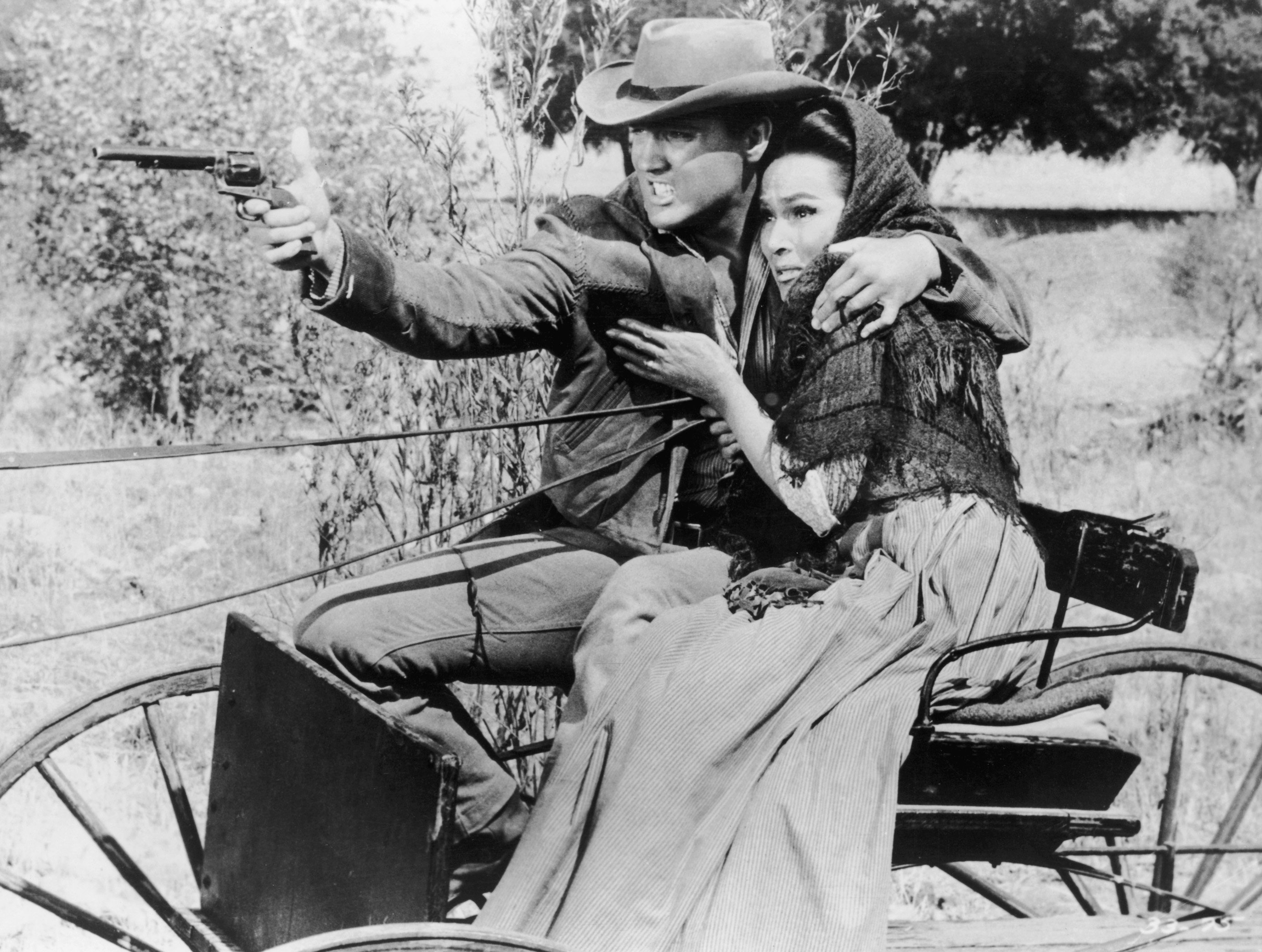Elvis Presley, often referred to as the "King of Rock 'n' Roll," has captivated audiences worldwide with his music and charisma. But beyond his legendary status lies a fascinating question: What ethnicity was Elvis? This article delves into the racial and cultural heritage of one of the most iconic figures in music history.
Elvis's influence transcends generations, and his legacy continues to inspire millions. Understanding his ethnic background provides deeper insights into the man behind the music and how his roots shaped his artistry.
This exploration will uncover the various ethnic influences in Elvis's life, shedding light on his ancestry and cultural identity. Let's embark on this journey to discover what ethnicity Elvis truly represented.
Read also:Vickie Benson A Comprehensive Guide To Her Life Career And Achievements
Table of Contents
- Elvis Presley: A Brief Biography
- Overview of Elvis's Ethnicity
- Elvis's Ancestral Background
- Cultural Influences on Elvis's Music
- Family Heritage and Roots
- Impact of Ethnicity on Elvis's Music
- Sub-Cultural Influences
- Common Misconceptions About Elvis's Ethnicity
- Historical Context of Racial Identity
- Conclusion: What Does Elvis's Ethnicity Mean Today?
Elvis Presley: A Brief Biography
Early Life and Rise to Fame
Elvis Aaron Presley was born on January 8, 1935, in Tupelo, Mississippi. Raised in a modest family, Elvis grew up surrounded by music, which played a significant role in shaping his future career. His parents, Vernon and Gladys Presley, instilled strong values in him, which later reflected in his work ethic and artistic expression.
Elvis's journey to fame began in Memphis, Tennessee, where he recorded his first song at Sun Studio in 1954. With hits like "Heartbreak Hotel" and "Hound Dog," he quickly became a household name, revolutionizing the music industry with his unique blend of rock 'n' roll, blues, and country.
Biographical Data
| Full Name | Elvis Aaron Presley |
|---|---|
| Birth Date | January 8, 1935 |
| Place of Birth | Tupelo, Mississippi |
| Death Date | August 16, 1977 |
| Place of Death | Memphis, Tennessee |
| Occupation | Singer, Actor |
Overview of Elvis's Ethnicity
Elvis Presley's ethnicity is a topic of intrigue for many fans and historians. His roots are a fascinating mix of various cultural backgrounds, contributing to his diverse musical style. Understanding these influences helps us appreciate the complexity of his identity.
Elvis's ancestry primarily traces back to European origins, with significant contributions from Scots-Irish, German, and other European ethnic groups. However, his exposure to African-American music during his formative years also played a crucial role in shaping his artistic identity.
Elvis's Ancestral Background
Scots-Irish Heritage
Elvis's paternal lineage reveals strong Scots-Irish roots. The Presley family emigrated from Scotland and Ireland, bringing with them a rich tradition of storytelling and music. This heritage contributed to Elvis's natural affinity for ballads and heartfelt lyrics.
German Influence
On his mother's side, Elvis had German ancestry. The German influence added depth to his musical style, introducing elements of precision and structure that became hallmarks of his performances. This blend of cultural elements made his music universally appealing.
Read also:Discover The Best South Indian Movies On Skymovieshdorg South Hindi Dubbed Collection
Cultural Influences on Elvis's Music
Elvis's exposure to diverse cultures during his upbringing significantly impacted his music. Growing up in the racially segregated South, he had access to both white and African-American musical traditions. This exposure allowed him to incorporate elements from gospel, blues, and jazz into his work.
- Gospel music: Elvis's love for gospel was evident in his powerful renditions of spiritual songs.
- Blues: The raw emotion and soulful delivery of blues music heavily influenced his vocal style.
- Jazz: The improvisational nature of jazz added spontaneity to his performances.
Family Heritage and Roots
Elvis's family played a pivotal role in shaping his cultural identity. His parents, Vernon and Gladys, were descendants of European immigrants who settled in the American South. Their values and traditions were passed down to Elvis, influencing his worldview and artistic expression.
Growing up in a tight-knit community, Elvis learned the importance of cultural preservation and respect for diverse traditions. These lessons were reflected in his music, which celebrated unity and inclusivity.
Impact of Ethnicity on Elvis's Music
Blending Styles
Elvis's ethnic background allowed him to seamlessly blend various musical styles, creating a unique sound that resonated with audiences worldwide. His ability to incorporate elements from different cultures made his music timeless and universally appealing.
Innovative Techniques
Elvis's innovative techniques, such as his use of syncopation and dynamic vocal range, were influenced by his exposure to diverse musical traditions. These techniques set him apart from his contemporaries and cemented his status as a musical pioneer.
Sub-Cultural Influences
Elvis's music also reflected the sub-cultural movements of his time. As a bridge between different racial and social groups, he helped break down barriers and promote understanding through his art. His embrace of African-American music styles challenged societal norms and paved the way for greater acceptance of cross-cultural collaboration in the music industry.
Common Misconceptions About Elvis's Ethnicity
There are several misconceptions about Elvis's ethnicity that have circulated over the years. Some people mistakenly believe he had Native American or African-American ancestry. While Elvis had a deep appreciation for these cultures, his documented ancestry primarily traces back to European origins.
These misconceptions highlight the complexity of cultural identity and the importance of accurate representation in historical narratives.
Historical Context of Racial Identity
To fully understand Elvis's ethnicity, it is essential to consider the historical context of racial identity in the United States during his lifetime. The mid-20th century was a time of significant social change, with the Civil Rights Movement challenging long-standing racial hierarchies.
Elvis's music played a role in this cultural shift, as it bridged gaps between different racial groups and promoted a message of unity and understanding. His ability to connect with diverse audiences was a testament to the power of music as a unifying force.
Conclusion: What Does Elvis's Ethnicity Mean Today?
In conclusion, exploring Elvis Presley's ethnicity provides valuable insights into the cultural and historical context of his life and career. His diverse ancestry and exposure to various musical traditions contributed to his unique artistry and lasting legacy.
Elvis's story serves as a reminder of the importance of embracing diversity and celebrating cultural differences. By understanding his roots, we can appreciate the profound impact he had on the music industry and society as a whole.
We invite you to share your thoughts and reflections in the comments below. Additionally, feel free to explore other articles on our site that delve into the fascinating world of music and culture. Together, let's continue the conversation about the enduring legacy of the King of Rock 'n' Roll.
Data and references from credible sources such as the Elvis Presley Archives and historical publications have been used to ensure accuracy and reliability in this article.


